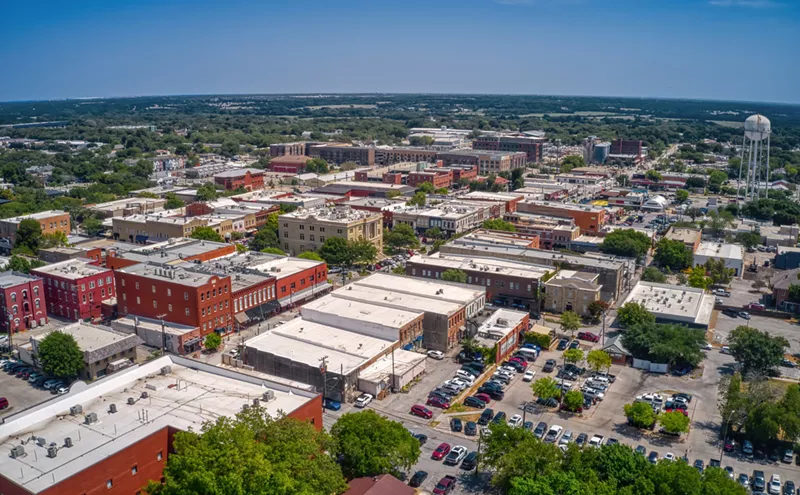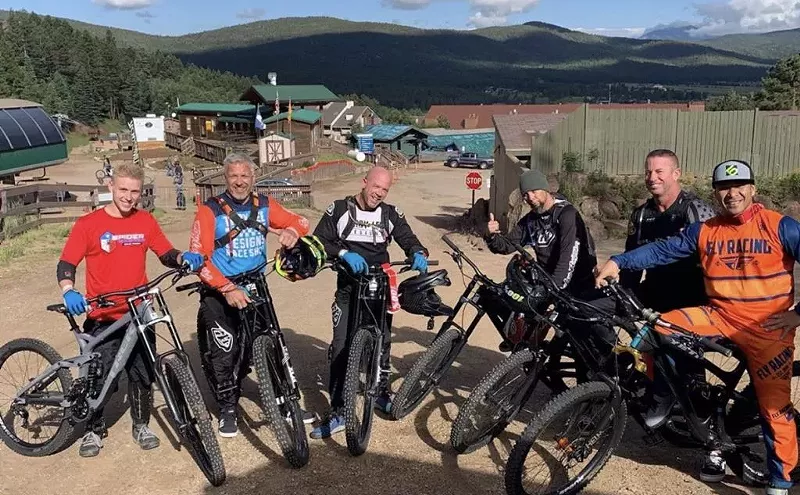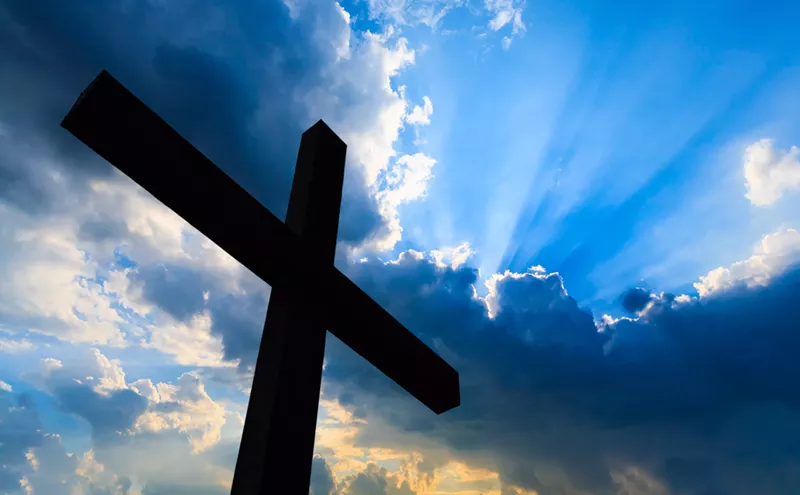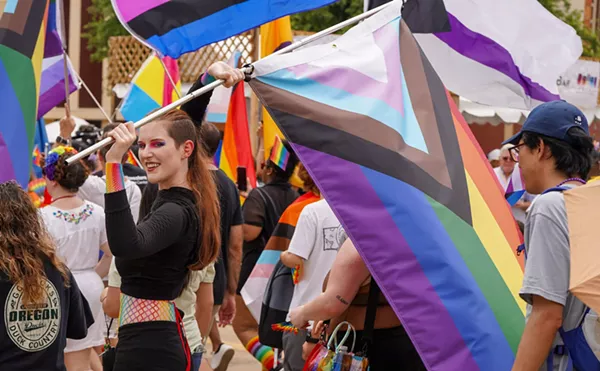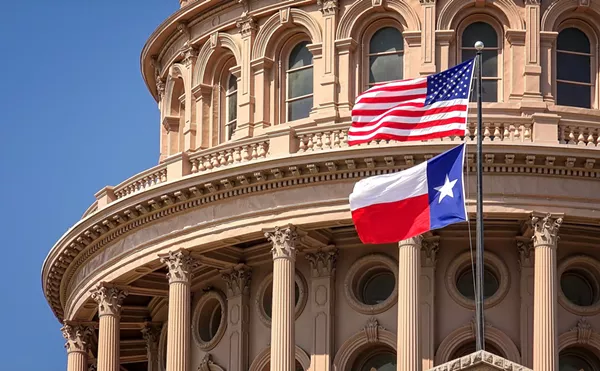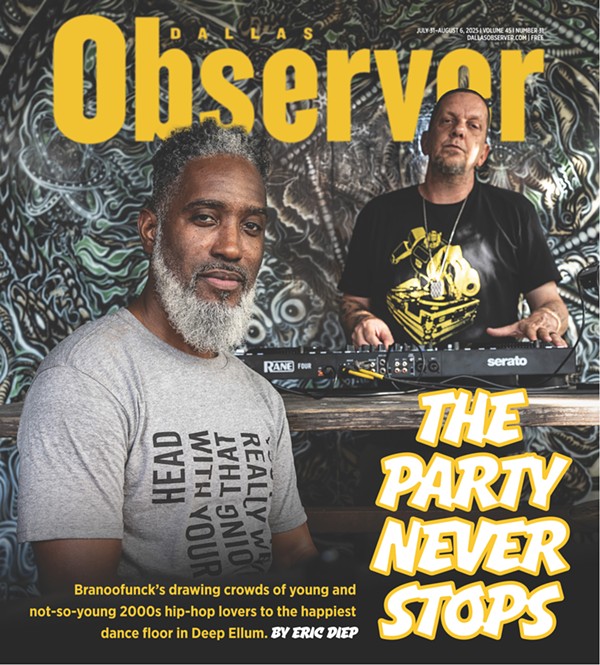Ostensibly, Texas justices of the peace can do two things now that same-sex marriage is legal in the state: They can either stop performing marriages entirely — they aren't legally required to officiate ceremonies — or they can marry anyone who wishes to get married in their courts. Denton County Justice of the Peace James DePiazza is going to do the latter, he just isn't particularly happy about it.
"I'm not going to do weddings any more, I'm going to do declarations of marriage," DePiazza says. "For the ceremonies I've done in the past, I wrote the vows, they were my vows that I wrote. I wrote short vows and long vows and gave [them to] the couple to choose which vows they wanted to use. All of them are very specific to a husband and a wife."
Couples getting married by DePiazza will no longer get the choice of vows. They can come in, affirm that they want to get married and are legally eligible to do so, and DePiazza will witness the marriage. That's it.
Anyone seeking a marriage in front of DePiazza will also have to sign a letter acknowledging that they know DePiazza would prefer not to conduct same-sex marriages. They also have to promise that there will be no "no discussion regarding [DePiazza's] position [on same-sex marriage] before, during or after the ceremony.
DePiazza could've elected to stop performing marriage ceremonies entirely — justices of the peace are not required to do so — but says he wanted to do what was best for his constituents.
"I went back in forth with it, and I made the decision that, for my constituents, if that is their desire — it doesn't matter to me what a person's sexual preference is, what their sexual orientation is. Regardless, they're a human being and they deserve dignity and respect. If that's the way that they want to live their life, that's between them, their partner and either they believe in their God or not, that's their choice," DePiazza says.
Offering only the stripped down ceremonies, DePiazza says, allows him to perform the duties required of a justice of the peace without compromising his personal beliefs.
"One of the laws now in Texas is that same-sex couples can now get married. So, if they want me to sign as a witness on their marriage license, that goes nothing against my convictions. That's why I decided to change the vows, not just for same-sex couples but across the board. I would be very uncomfortable because of my convictions saying to somebody 'I now pronounce you husband and husband or wife and wife.' That would've been very difficult for me to do. To honor my authority as a justice of the peace to be a witness to somebody saying they want the rites of marriage in the state of Texas, that's civil law and I have no issue with giving them that."
Katherine Franke, the director of the Public Rights/Private Conscience Project at Columbia University's law school, says that what DePiazza is doing — specifically in making marriage seekers sign the letter — is probably unconstitutional.
"I think it's an interesting innovation in trying to hold your nose and do your job by making everybody else hold your nose as well. It's creative, but I don't imagine it will stand up in court," Franke says. "Even for a heterosexual couple that's getting married and [DePiazza's] not opposed to their marriage, the only way they can get married is to acknowledge that he doesn't want to marry gay people. I could see straight people being offended."
One can't force those qualified for a particular public benefit to accept an insult to receive that benefit, Franke says.
DePiazza's decision raises free speech issues as well. He is, Franke says, both compelling couples into speech by requiring that they sign the letter, and limiting otherwise legal speech in ordering that they not discuss DePiazza's opinion on same-sex marriage in the courtroom.
Regardless of the constitutional issues, not many couples are likely to want to get married by DePiazza anyway, suggests Glen Maxey, the first openly gay member of Texas' Legislature and current director of county affairs for the Texas Democratic Party. Going to get married by a county or state official who opposes same-sex marriage wouldn't be very fun.
"A JP, if they're [performing marriages], they can't discriminate, but I'll put the asterisk on that. Who wants to go to them anyway to get married? There are many, many, many other options to get married. I did some weddings here in Austin over the weekend, and I think the most overwhelming thing to people who walked in the door was me saying 'Well, who do you want to have marry you? I have secular, non-secular, I've got five different Christians, I've got a rabbi, I've got a federal judge, I've got five JPs. Who do want to marry you?' and they would go 'Uhhh, I don't care.' The problem of getting married once you have the license is not a big problem."

Audio By Carbonatix
[
{
"name": "GPT - Billboard - Slot Inline - Content - Labeled - No Desktop",
"component": "21721571",
"insertPoint": "2",
"requiredCountToDisplay": "2"
},{
"name": "STN Player - Float - Mobile Only ",
"component": "21861991",
"insertPoint": "2",
"requiredCountToDisplay": "2"
},{
"name": "Editor Picks",
"component": "17105533",
"insertPoint": "4",
"requiredCountToDisplay": "1"
},{
"name": "Inline Links",
"component": "18349797",
"insertPoint": "8th",
"startingPoint": 8,
"requiredCountToDisplay": "7",
"maxInsertions": 25
},{
"name": "GPT - 2x Rectangles Desktop, Tower on Mobile - Labeled",
"component": "22608066",
"insertPoint": "8th",
"startingPoint": 8,
"requiredCountToDisplay": "7",
"maxInsertions": 25
},{
"name": "Inline Links",
"component": "18349797",
"insertPoint": "8th",
"startingPoint": 12,
"requiredCountToDisplay": "11",
"maxInsertions": 25
},{
"name": "GPT - Leaderboard to Tower - Slot Auto-select - Labeled",
"component": "17357520",
"insertPoint": "8th",
"startingPoint": 12,
"requiredCountToDisplay": "11",
"maxInsertions": 25
}
]



